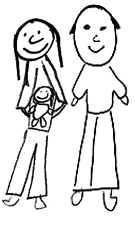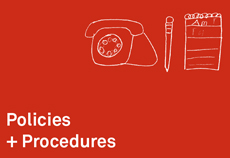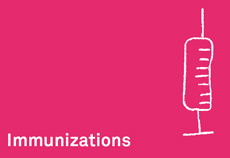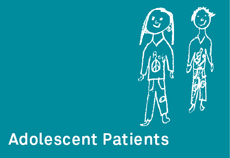
Congratulations! This will help answer many questions you may have about your new baby. As you read, remember that each baby is an individual and cannot be expected to be exactly like other babies in behavior, feeding patterns, development or growth. You'll soon discover what's normal for your baby. If you're unable to find an answer to a question here, write it down as it occurs to you, and don't hesitate to ask us about it during your hospital stay or office visits. It will be a pleasure for my staff or myself to assist you in anyway possible.
To read more, click on the topic you would like to know more about.
> Bathing
 You can tub-bathe your baby as soon as you want. There is no reason to wait for the cord to fall off. After all, your baby has been in water for the past 9 months. Also, infants prefer to be dipped into the water than to be splashed all over. When you bathe your baby, be sure the room is warm-without drafts-and that the water temperature is about 90º F. If your baby's skin seems dry, apply baby lotion. Eucerine cream is an excellent choice.
You can tub-bathe your baby as soon as you want. There is no reason to wait for the cord to fall off. After all, your baby has been in water for the past 9 months. Also, infants prefer to be dipped into the water than to be splashed all over. When you bathe your baby, be sure the room is warm-without drafts-and that the water temperature is about 90º F. If your baby's skin seems dry, apply baby lotion. Eucerine cream is an excellent choice.> Bottle-Feeding
 Infant formula provides the best alternative to breast milk if you choose not to breast feed or if you stop breastfeeding before your baby's first birthday. We recommend that iron-fortified infant formula be fed until your baby is one year old. Cow's milk-whole, 2%, or skim-should not be fed to your baby before their first birthday. After that, you should start whole milk-not 2% or skim. Your newborn baby will probably take in 2 to 4 ounces of formula per feeding. When you see that your baby is emptying a bottle, add an extra ounce to the next feeding and increase the volume slowly-to a maximum of 8 ounces. Hold the bottle so the formula fills the nipple. This will help your infant avoid swallowing air. Too much swallowed air not only gives baby a false feeling of being full but might also make your baby uncomfortable later. The size of the nipple hole should be large enough that the milk drips at a steady rate without forming a stream. If milk pours out too rapidly, discard the nipple. If the hole is too small, enlarge it by punching a needle or a clean toothpick through the hole. You should never prop your baby's bottle and let him feed by himself. Bottle propping not only deprives your baby of physical contact, but it may also be dangerous to small infants who may choke on formula or water if left unattended. Try and get your baby on a feeding schedule as soon as possible. The sooner you do it, the easier it will be. Start with feedings every 2 1/2-3 hours and work from there. It is important to let your baby get hungry between feedings so that she eats well at the next one.
Infant formula provides the best alternative to breast milk if you choose not to breast feed or if you stop breastfeeding before your baby's first birthday. We recommend that iron-fortified infant formula be fed until your baby is one year old. Cow's milk-whole, 2%, or skim-should not be fed to your baby before their first birthday. After that, you should start whole milk-not 2% or skim. Your newborn baby will probably take in 2 to 4 ounces of formula per feeding. When you see that your baby is emptying a bottle, add an extra ounce to the next feeding and increase the volume slowly-to a maximum of 8 ounces. Hold the bottle so the formula fills the nipple. This will help your infant avoid swallowing air. Too much swallowed air not only gives baby a false feeling of being full but might also make your baby uncomfortable later. The size of the nipple hole should be large enough that the milk drips at a steady rate without forming a stream. If milk pours out too rapidly, discard the nipple. If the hole is too small, enlarge it by punching a needle or a clean toothpick through the hole. You should never prop your baby's bottle and let him feed by himself. Bottle propping not only deprives your baby of physical contact, but it may also be dangerous to small infants who may choke on formula or water if left unattended. Try and get your baby on a feeding schedule as soon as possible. The sooner you do it, the easier it will be. Start with feedings every 2 1/2-3 hours and work from there. It is important to let your baby get hungry between feedings so that she eats well at the next one.> Bowel Movements
If your baby seems happy and content, is eating normally, and has no symptoms of illness, then do not worry about minor stool changes. Changes in number of stools, consistency, or color are normal. The number of stools a baby has daily varies. Some babies may have a stool with every feeding--that is 6 to 8 stools per day-or they may have one stool every week. The consistency and color of stools will also vary from day to day. Breast-fed infants usually have very liquid, yellow or mustard-colored stools that are not an indication of diarrhea. Formula-fed infants usually have yellowish tan stools. All babies will occasionally have green, brown or gray-colored stools. Babies often strain, grunt, grimace and turn red in the face when having a bowel movement. This is not a sign of a problem! This is normal! Constipation is present when stools are small and pebble-like. Constipation has nothing to do with the number of frequency of stools. Do not use enemas, suppositories or laxatives until you have talked to us. Also do not use Karo Syrup or honey for constipation since these may carry botulism. Mineral Oil may be given at a dose of 2 tsp/4 oz's of formula with each feeding until the stools soften. This may take up to 48 hours to work. Call us if it doesn't. Diarrhea is defined as more than 8 loose stools per day. The stools contain a great deal of water (they leave a water ring on the diaper or soak through.) If your baby has diarrhea, call us. Often, stopping all milk and solid foods and substituting frequent, small amounts (1-2 oz.) of oral electrolyte solution will alleviate diarrhea. Call First!
> Breast-Feeding
Breast milk is the ideal nutrition for babies during the first year of life. It provides just the right balance and amounts of nutrients most babies need for good growth and development. And it contains factors that help protect babies agains certain illnesses and allergies. If you're breast-feeding, you will need to get a balanced diet that provides 500-600 more calories a day than the diet you followed before you were pregnant. Your diet should be high in protein and should include milk daily. If you're unable to drink milk or other calcium-containing foods, then a calcium-containing supplement can be prescribed by your [physician. As a woman, you SHOULD normally be taking 1000 mg of calcium a day, or 3 glasses of milk. Breast feeding mothers should aim for 1500 mg of calcium a day. You should probably get a calcium supplement to meet this need! Foods in your diet seldom have a disturbing effect on your baby. Occasionally, however, certain foods such as tomatoes, onions, cabbage, chocolate, and spicy foods may cause your baby to have loose stools, colic, or excess gas. If your baby has these symptoms, eliminate the offending foods from your diet. Likewise, certain medications such as sedatives, laxatives, and antibiotics may be passed on through your milk. Always check with your physician before taking any medication even "over-the-counter" types. Mothers who choose to breast-feed should rinse their nipples with plain water before and after each nursing and then carefully dry them. You should nurse from both breasts, the first for 7-10 minutes before going to the second. The next feeding should begin at the breast where the last feeding was completed (a safety pin on your bra will help remind you where to start the next feeding.) Total nursing time will vary from 10 to 20 minutes on each breast. During your first few feedings you may want to limit your nursing time to 5 minutes on each breast to help prevent sore nipples. You should know that babies get 80-90% of the milk in the first five minutes on each breast. The rest of the time is for bonding and T.L.C.
> Burping
Burping your baby helps remove air swallowed during feeding. You can burp your baby if he or she seems to need it. There are two good methods for burping your baby: 1) Hold your baby so baby's head rests on your shoulder and baby's chest rests against yours. Then pat your baby's back or rub it upward with y our hand; 2) Sit your baby on your knee, support his or her chest with your hand, lean him forward slightly and tap him gently over his lower back while gently bouncing your knee.
> Car Seats
We cannot stress enough the importance of keeping your child restrained in a car safety seat. If you are starting out with an infant seat, keep in mind that they need to be replaced by a seat intended for larger children by the time your child sits up by himself/herself. They should face backwards until 20 lbs. Children must be restrained in a car seat until they reach 40 lbs. Between 40-80 lbs, a booster seat is recommended. After that, buckle up! Read more
> Choking
Click here to download a chart for First Aid for Choking.
> Circumcision
The decision to circumcise is strictly a personal one. It is no longer medically recommended. If you had your son circumcised, take care of it as you would any other part of his body. In other words, KEEP IT CLEAN with soap and water. Also, during the first few days until it heals up, apply Bacitracin ointment every diaper change. Call us if there is any redness, swelling or pus coming from the area. Circumcised Penis: Use Bacitracin to the tip for the first few days until it is healed then leave it alone, keeping it clean with soap with water. DO NOT tug on the foreskin trying to pull it back. This will injure it and cause pain. Uncircumcised Penis: The main thing to remember is to keep the penis clean and leave it alone! The foreskin will retract on its own after 5 years of life. Keep the care simple and do no harm.
> Colds
 A runny nose, nasal congestion or mild cough--unless they are accompanied by vomiting or high fever--can be usually handled at home. Most newborns have an increased amount of nasal mucus during the first one or two months of life that can result in sneezing and noisy breathing. Do not use a vaporizer before checking with us. It could actually make the problem worse if your baby is wheezing. Please call! Also, DO continue to breast feed or formula feed despite of increased congestion. THe need to stop these feeds during times of congestion is an old-wives tale.
A runny nose, nasal congestion or mild cough--unless they are accompanied by vomiting or high fever--can be usually handled at home. Most newborns have an increased amount of nasal mucus during the first one or two months of life that can result in sneezing and noisy breathing. Do not use a vaporizer before checking with us. It could actually make the problem worse if your baby is wheezing. Please call! Also, DO continue to breast feed or formula feed despite of increased congestion. THe need to stop these feeds during times of congestion is an old-wives tale.> Cradle Cap
White dandruff-like flakes are often found on the scalp of infants. These flakes are the result of normal shedding of old, dead skin, and they do not indicate a dry scalp condition. Do not use oils, lotions, or Vaseline. They can only stick these flakes to the scalpe and make the condition worse. If you notice thick yellowish scales, this is cradle cap. It is very common in infants, and it results from the accumulation of old, dead skin. This condition can occur in spite of washing. Oils, lotions or Vaseline make this condition worse. You treat cradle cap by removing the scales with a soft brush, and using Selsun shampoo every night until it clears up. This usually takes 1-2 weeks.
> Crowds
Until your baby has a chance to build up resistance to infections, you should try to hold to a minimum the number of visitors, especially children, who handle your baby. We also suggest that you avoid taking your new baby into large crowds during the first few weeks, especially during flu season. Also, make sure everyone washes their hands right before they touch your newborn. This will prevent lots of colds!
> Diaper Rash
The best cure for diaper rash is prevention. Change your baby's diaper as soon as possible after each bowel movement or wetting. Wash the area with plain water, and apply diaper-rash cream of Vaseline. Some babies are prone to diaper rash. The following suggestions may help: Leave the diaper off for about 15-30 minutes 4 times daily to air dry the area. If using cloth diapers, use a mild soap to wash the diapers, and rinse them twice! Do not use bleach or fabric softener. Don't use powders or cornstarch products they only increase skin irritaiton and cause yeast infections. Do use a moisturizing, healing cream such as A & D, Eucerin cream or Desitin. If nothing seems to be working, CALL US!
> Diarrhea
Diarrhea is defined as 8-12 loose stools per day. Severe diarrhea with persistent vomiting or blood in the stool should be reported to us. Mild diarrhea fewer than 5 or 6 times a day that is not accompanied by fever or vomiting can be handled at home. The latest literature all supports the theory of "feeding through the diarrhea." In other words, keep breast or formula feeding! The more calories, the better. Without vomiting, your infant will not dehydrate as long as he or she is feeding normally. With vomiting and/or fever, call us.
> Dosage Info: Acetaminophen & Ibuprofen
Download the tables here to find out the correct dosage information for Acetaminophen and Ibuprofen. Please contact our office with any questions.
> Eyes
Many infants appear to have slightly crossed eyes. This is often caused by temporary muscle imbalance. Also, sometimes the wide skin are across the nose makes the eyes appear crossed when they are not. Crossed eyes will generally correct themselves by the end of the first year. If they don't, we will refer your baby to an eye specialist by 6 months of age. Yellow drainage from both eyes sometimes accompanied by redness or swelling may occur during the first five to seven days of life. This drainage and swelling is generally caused by obstruction of the tear ducts. These need to be massaged. They run from the inner corner of the eye to the nose. We can show you how to do this in the office. If the drainage doesn't clear up with massages and cleaning with a wash cloth, antibiotic drops may be required, so call us.
> Feeding Your Baby
 You should keep your baby on breast milk or Similac Advance Early Shield (or other formula) until your baby reaches her first birthday. Cow's milk--whole, 2% or skim--should not be given during the first year. It may cause intestinal bleeding, and does not provide adequate nutrition. Your newborn may need feeding as often as every two hours, but keep in mind your baby does not need to be fed every time he or she cries. Consistent crying at short intervals may mean more milk is needed at each feeding, or your baby may be uncomfortable from soiled or wet diapers, colic, swallowed air, or an environment that is too hot or too cold. You should not get into he habit of offering frequent, small feedings to pacify all crying. Before you feed your crying baby, make sure the crying isn't a result of other discomforts. Help your new baby establish its own feeding schedule by deciding when you want to feed him or her. Your infant will readily adapt to your schedule. Do not wake your baby at night (after 7:00) for feedings. Let a sleeping infant be. Length of feedings vary, but generally breast-fed infants nurse 10 to 20 minutes on each breast and need to be fed every 2 to 3 hours. Most formula-fed infants take 2 to 4 ounces of formula every 3 to 4 hours during the first weeks and will gradually increase their formula consumption to 6 to 8 ounces. Many parents want to know if their baby is eating enough. The most accurate gauge of this is growth. That's one reason your baby will need to see us often during the first two y ears of life--so we can measure growth. Besides growth, there are several signs that will let you know your baby is eating enough. They are: " satisfaction after eating; "wetting 6 or more diapers daily; " having stools The introduction of solids varies from infant to infant. We will discuss that at each well baby check. Also, see the section on "Introduction of Solid Foods." There is no need to sterilize bottles or boil water these days. Clean bottles and nipples with hot, soapy water and double rinse. Tap water is not only safe, but may contain fluoride, which is essential for strengthening teeth. (with your town water department!) If you are concerned about impurities in your water, allow the water to run for approximately 2 minutes before using. Boiling the water will actually concentrate whatever impurities are already present.
You should keep your baby on breast milk or Similac Advance Early Shield (or other formula) until your baby reaches her first birthday. Cow's milk--whole, 2% or skim--should not be given during the first year. It may cause intestinal bleeding, and does not provide adequate nutrition. Your newborn may need feeding as often as every two hours, but keep in mind your baby does not need to be fed every time he or she cries. Consistent crying at short intervals may mean more milk is needed at each feeding, or your baby may be uncomfortable from soiled or wet diapers, colic, swallowed air, or an environment that is too hot or too cold. You should not get into he habit of offering frequent, small feedings to pacify all crying. Before you feed your crying baby, make sure the crying isn't a result of other discomforts. Help your new baby establish its own feeding schedule by deciding when you want to feed him or her. Your infant will readily adapt to your schedule. Do not wake your baby at night (after 7:00) for feedings. Let a sleeping infant be. Length of feedings vary, but generally breast-fed infants nurse 10 to 20 minutes on each breast and need to be fed every 2 to 3 hours. Most formula-fed infants take 2 to 4 ounces of formula every 3 to 4 hours during the first weeks and will gradually increase their formula consumption to 6 to 8 ounces. Many parents want to know if their baby is eating enough. The most accurate gauge of this is growth. That's one reason your baby will need to see us often during the first two y ears of life--so we can measure growth. Besides growth, there are several signs that will let you know your baby is eating enough. They are: " satisfaction after eating; "wetting 6 or more diapers daily; " having stools The introduction of solids varies from infant to infant. We will discuss that at each well baby check. Also, see the section on "Introduction of Solid Foods." There is no need to sterilize bottles or boil water these days. Clean bottles and nipples with hot, soapy water and double rinse. Tap water is not only safe, but may contain fluoride, which is essential for strengthening teeth. (with your town water department!) If you are concerned about impurities in your water, allow the water to run for approximately 2 minutes before using. Boiling the water will actually concentrate whatever impurities are already present.> Formula Feedings: Supplemental
You should avoid skipping breast-feeding during the first few weeks while your milk supply is being established. After your milk is established, however, a supplementary feeding of formula from a bottle can be given when it is impractical for you to nurse. Also after your milk supply has been established, a couple ounces of water can be offered one or two times a day between feedings. If you have to miss a breast-feeding, the supplementary feeding to use is Similac Advance Early Shield.
> Fever
Fever is a temperature over 100.5 rectally. Medications like Tylenol (acetaminophen) to reduce fever should be given. When your baby has a fever, give extra liquids such as water, juice, formula, or breast milk. Any fever should be reported to us. First be sure that the "fever" is not due to being overdressed in a room that's too warm or being outside on a day that's too hot. To get the fever down, you may sponge off your child's head with room temperature water (about 78 F), or give him a bath in comfortably warm water for 20-30 minutes--get the hair wet! Do not make the water too cold. Ice baths should never be used at home; nor should alcohol baths. Your home should have a rectal thermometer that you are comfortable using. We suggest any of the inexpensive digital thermometers available at your local drug store.
> Head
You can tub-bathe your baby as soon as you want. There is no reason to wait for the cord to fall off. After all, your baby has been in water for the past 9 months. Also, infants prefer to be dipped into the water than to be splashed all over. When you bathe your baby, be sure the room is warm--without drafts--and that the water temperature is about 90º F. If your baby's skin seems dry, apply baby lotion. Eucerine cream is an excellent choice.
> Hiccoughs & Sneezing
We get a lot of questions about these 2 things. Both are very common and completely harmless. Don't try to "stop" them, because they'll go away on their own. Hiccoughing is actually a "muscle twitch" of the diaphragm muscle that sits under the lungs. A full belly will often trigger these twitches, and can last up to 60 minutes. Sneezing is caused by dust particles and other "things" in the air that newborns aren't used to. Sneezing is a way for infants to lear out their upper airway and nostrils. It is not a sing of illness, so don't get too nervous about thos.
> Immunizations
As you know, your child will be receiving many vaccinations over the next 5 years. This is to protect 1) your child, 2) others who have not been immunized and 3) pregnant women, whose fetus may be infected by an unimmunized child! The State of New York reuires that we give you literature to read about each of the shots and that you sign permits before we administer the shots. The immunization schedule may be seen here.
> Let Us Know...
...If there is a family history of: Congenital Hips Thyroid Disease SIDS Heart Disease/Cholesterol Problems Diabetes Immune suppressed person at home Seizures Cystic Fibrosis Anemia Any other genetic or medical condition
> Milk
At one year of age, you can change your infant to whole milk if you want to. Breast feeding may continue, formula should stop. DO NOT use 2% of skim milk until age 2 years old. The fat in the whole milk is necessary for brain growth. Also, due to cholesterol in milk, limit your child to 24 oz of milk/day (or approx. 3 glasses a day)
> Poisons
 All medications at home should have child-proof caps and should be kept in a locked or out-of-reach cabinet. Likewise, all soaps, cleaning agents, and painting supplies should be stored away in a secure place. If you've seen your child swallow a poison or medicine--or if you think he has--call poison control at once. Then call us. Do not induce vomiting! The poison control number is 1-800-222-1222. Have it in a place where you can find it! Stuck underneath your phone, you can always find it!
All medications at home should have child-proof caps and should be kept in a locked or out-of-reach cabinet. Likewise, all soaps, cleaning agents, and painting supplies should be stored away in a secure place. If you've seen your child swallow a poison or medicine--or if you think he has--call poison control at once. Then call us. Do not induce vomiting! The poison control number is 1-800-222-1222. Have it in a place where you can find it! Stuck underneath your phone, you can always find it!> Safety
As soon as you can, go buy certain items to make your home a child-safe place. These things are: Electric socket plugs Gates for stairs and rooms you want out of bounds Locks for cabinets that contain cleaning products and medicine Also, get all poisons up and out of reach! And remember that plants can be poisonous too! Click here to download a Household Baby Safety Guide.
> Skin
Some infants have white dots over their nose. These are called milia. They are harmless and will disappear without treatment. Pimples on cheeks or chin are called newborn acne and are the symptom of one of the most common newborn rash. This rash will resolve itself in 6 to 8 weeks. An effective treatment is to wash the area with a mild soap once or twice daily. Oils, lotions, or cream will worsen the problem. Dry skin should be re-hydrated with Eucerin cream 3 or 4 times a day. You should call us if it isn't working.
> Sleeping
 As soon as you bring your baby home, establish a reasonable bedtime routine (7:00-8:00pm) and stick to it forever! Most newborns will wake up for feedings every 2 to 4 hours. Usually babies begin sleeping through the night at about one to two months of age. An occasional baby will sleep through the night sooner or right from birth. Sometimes parents think that starting solid food will make their baby sleep through the night, but there is no evidence that it will. Food is not a sedative and should not be added to the diet for that reason. By about 5 to 7 months of age, your baby may return to waking during the night. This is a normal stage of development. If this occurs, let the baby stay in bed, comfort him, pat him on the back, and change him if necessary. The pattern of nighttime sleeping will be reestablished quickly. Don't doom your own sleep patterns by allowing your baby into your bed. Be firm about where he or she should sleep. It will pay off quickly after 2 or 3 nights.
As soon as you bring your baby home, establish a reasonable bedtime routine (7:00-8:00pm) and stick to it forever! Most newborns will wake up for feedings every 2 to 4 hours. Usually babies begin sleeping through the night at about one to two months of age. An occasional baby will sleep through the night sooner or right from birth. Sometimes parents think that starting solid food will make their baby sleep through the night, but there is no evidence that it will. Food is not a sedative and should not be added to the diet for that reason. By about 5 to 7 months of age, your baby may return to waking during the night. This is a normal stage of development. If this occurs, let the baby stay in bed, comfort him, pat him on the back, and change him if necessary. The pattern of nighttime sleeping will be reestablished quickly. Don't doom your own sleep patterns by allowing your baby into your bed. Be firm about where he or she should sleep. It will pay off quickly after 2 or 3 nights.> Solids
 Sometime between 2 to 6 months of age, you may decide you want to start solid foods. Here are some things you need to know. Although solid foods are not necessary until 6 months of age, not all babies are the same, and some may need solids sooner than that time. You will know best. Please feel free to call us anytime to discuss this. When you start solids, you can start with an iron-fortified cereal. Begin with 2 tablespoons of rice cereal, 3 times a day--breakfast, lunch and dinner. Do not add anything new for one week! This will give you a chance to see if there are any reactions. To advance to other foods, you may then pick anything else and add it to your baby's diet. The only rule we have is that you don't add more than one new food per week. It does not matter the order in which you add these foods. A suggested regiment would be yellow vegetables followed by green vegetables, meats and then fruits (save the sweets for last!) Also, juices count as a new food and you must not add another food if you start juice that week. And don't "dilute" it either. Of great importance is not to confuse eating habits with sleep habits. Infants do not sleep through the night because of adding cereal or other solids. They learn to sleep through the night naturally. Don't be fooled by this "old wives tale!" Also, "food allergies" consist of hives and wheezing and are very rare. Call us if you think your baby is allergic! Early introduction of solids has not been shown to increase the chance of a food allergy. Our only rules are no Karo syrup, honey or peanut butter until one year of age.
Sometime between 2 to 6 months of age, you may decide you want to start solid foods. Here are some things you need to know. Although solid foods are not necessary until 6 months of age, not all babies are the same, and some may need solids sooner than that time. You will know best. Please feel free to call us anytime to discuss this. When you start solids, you can start with an iron-fortified cereal. Begin with 2 tablespoons of rice cereal, 3 times a day--breakfast, lunch and dinner. Do not add anything new for one week! This will give you a chance to see if there are any reactions. To advance to other foods, you may then pick anything else and add it to your baby's diet. The only rule we have is that you don't add more than one new food per week. It does not matter the order in which you add these foods. A suggested regiment would be yellow vegetables followed by green vegetables, meats and then fruits (save the sweets for last!) Also, juices count as a new food and you must not add another food if you start juice that week. And don't "dilute" it either. Of great importance is not to confuse eating habits with sleep habits. Infants do not sleep through the night because of adding cereal or other solids. They learn to sleep through the night naturally. Don't be fooled by this "old wives tale!" Also, "food allergies" consist of hives and wheezing and are very rare. Call us if you think your baby is allergic! Early introduction of solids has not been shown to increase the chance of a food allergy. Our only rules are no Karo syrup, honey or peanut butter until one year of age.> Spitting Up
All babies will occasionally spit up small amounts of formula or breast milk after a feeding. This spitting up is not a cause for alarm. It may be reduced to a minimum by adequate burping during or after feedings. It will happen for the first nine months of life.
> Teething
 A few babies begin teething at 3 to 4 months of age, but most don't start until about 6 to 7 months of age. Most babies are not troubled by the teething process, but some are irritable, eat poorly, and have trouble sleeping when teeth begin to arrive. If your baby seems uncomfortable, you may want to give him acetaminophen or apply a mild topical anesthetic to the gums. Teething toys and biscuits are also helpful. Children are susceptible to other infections when teeth first break through the gums. It is important for us to know if they have a fever.
A few babies begin teething at 3 to 4 months of age, but most don't start until about 6 to 7 months of age. Most babies are not troubled by the teething process, but some are irritable, eat poorly, and have trouble sleeping when teeth begin to arrive. If your baby seems uncomfortable, you may want to give him acetaminophen or apply a mild topical anesthetic to the gums. Teething toys and biscuits are also helpful. Children are susceptible to other infections when teeth first break through the gums. It is important for us to know if they have a fever.> Umbilical Cord
Don't worry about getting the umbilical cord wet. The umbilical cord will fall off by itself in one to four weeks. Apply alcohol to the cord three times a day with a cotton swab. Do not worry if the navel oozes spots of blood or a clear moist discharge after the cord falls off. This is natural. If the oozing persists more than two days, if it has a foul odor, if you notice redness of the skin around the cord, or if a fever is present, notify us.
> Vagina and Breasts
Many newborn girls have a whitish vaginal discharge or a bloody discharge. This is normal. Simply clean the area with a cotton ball soaked in sterile water. It's normal for some babies (boys and girls) to have a thin discharge from their nipples or to have enlarged or swollen breasts after birth. No treatment is necessary since the condition will go away. If you notice any definite redness of the breasts when they are swollen, notify us.
> Vitamins
If you breast-feed, we will offer you a prescription for Vitamin D. We might prescribe fluoride vitamins for your baby at the 6 month visit if your water supply is not fluoridated. You can check for fluoride by calling your local town hall. Most infants in this country do not need other extra vitamins, unless they become exceptionally picky eaters.
> Vomitting
Forceful, persistent vomiting with or without fever in an infant or in any child if it is associated with fever or abdominal pain, should be reported to us. Vomiting after a bump or blow to the head should also be reported to us. If your child is over 6 months of age, is alert, and has no fever or pain, simple vomiting from "flu" or upset stomach can easily be handled at home. " Feed nothing by mouth for 2-4 hours until the vomiting stops. " Then, offer sips (1 or 2 ounces) of oral electrolyte solution every hour for 2-4 hours; ice chips work great, too! " If these fluids stay down then advance slowly, increasing by 1 ounce each feeding " Call us if you have any questions!
> Water
There is never any reason to give your infant water. In fact, too much water is dangerous for a newborn. There is no nutritional or caloric value in water, so don't fill them up with it. Remember that formula and breast milk are all that are neeeded to keep your infant hydrated. They are 90% water.
> Weight Gain and Weight Loss
Most newborns weigh between 5.5 to 10 pounds, with the average weight being about 7.5 pounds. Breast-fed babies may lose slightly more weight at first without cause for concern. This weight loss is from the los of excewss body water and is perfectly normal. Most infants will regain their birth weight by 14 days, double it by 5 months, and triple it by one year.






